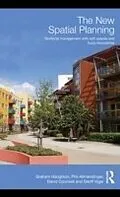Spatial planning, strongly advocated by government and the profession, is intended to be more holistic, more strategic, more inclusive, more integrative and more attuned to sustainable development than previous approaches. In whatthe authorsrefer to as the New Spatial Planning, there is a fairly rapidly evolving maturity and sophistication in how strategies are developed and produced. Crucially,the authorsargue that the reworked boundaries of spatial planning means that to understand it we need to look as much outside the formal system of practices of 'planning' as within it. Using a rich empirical resource base, this book takes a critical look at recent practices to see whether the new spatial planning is having the kinds of impacts its advocates would wish. Contributing to theoretical debates in planning, state restructuring and governance, italso outlines and critiques the contemporary practice of spatial planning.This book will havea place on the shelves of researchers and students interested in urban/regional studies, politics and planning studies.
Titel
New Spatial Planning
Untertitel
Territorial Management with Soft Spaces and Fuzzy Boundaries
EAN
9780203864425
ISBN
978-0-203-86442-5
Format
E-Book (pdf)
Hersteller
Herausgeber
Genre
Veröffentlichung
17.11.2009
Digitaler Kopierschutz
Adobe-DRM
Anzahl Seiten
288
Jahr
2009
Untertitel
Englisch
Unerwartete Verzögerung
Ups, ein Fehler ist aufgetreten. Bitte versuchen Sie es später noch einmal.
